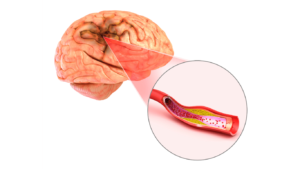Intro
Depression, a term often loosely used in everyday conversations, has a much deeper implication in the world of mental health. It’s not simply a state of feeling sad or low; it’s a serious mood disorder that can adversely affect how a person thinks, feels, and functions in their daily life. In this article, we aim to demystify depression by exploring its definition, causes, symptoms, impact, treatment options, and the importance of support and self-care.
What is Depression?
Often casually tossed around in everyday discourse, the term "depression" bears a much heavier significance in mental health circles. Referred to medically as Major Depressive Disorder (MDD), depression is a serious mental health condition. It's marked by pervasive feelings of despair, hopelessness, and disinterest in activities that were once sources of joy. Unlike transient emotional responses to everyday setbacks, depression persists, infiltrating every aspect of a person's life and leading to a host of emotional and physical complications.
This can manifest as impaired functionality at work and home, severely impacting overall quality of life. Depression is not a rarity, and its global presence is concerning. The World Health Organization reports that depression affects over 264 million people across all age groups worldwide. It's crucial to remember that while depression is a common condition, its profound effects on a person's life make it a serious concern that deserves attention, understanding, and proper treatment.
Common Causes and Risk Factors
Depression doesn't have a singular origin. Rather, it sprouts from a multitude of sources and is ignited by various triggers. Several elements contribute to its onset, including genetic factors, biological elements such as brain chemistry imbalances, and one's personal environment. Additionally, psychological and social aspects are potential culprits behind the emergence of depression. For example, enduring high levels of stress or trauma could set the stage for this mental health condition.
Certain health conditions, like chronic diseases, can heighten the risk of depression, acting as a catalyst for its development. Similarly, substance misuse and the use of specific medications may precipitate depressive episodes. It's important to note that depression can affect anyone, regardless of age, gender, or background, and these risk factors are not exclusive predictors. They merely increase susceptibility to the condition, suggesting that a holistic approach is necessary for understanding and managing depression.
Recognizing the Symptoms
The symptoms of depression can range in intensity, and may differ from person to person. Some people may experience mild symptoms, while others may experience symptoms that are significantly more severe. The most common symptoms include persistent feelings of sadness or hopelessness and a disinterest in activities that previously brought pleasure. Physical changes, such as disturbances in sleep patterns, can also be indicative of depression. Some people might struggle to sleep, while others may sleep excessively. Another symptom could be a noticeable decrease in energy or unexplained fatigue.
Cognitive difficulties like problems concentrating or making decisions are also common. In severe cases, depression can evoke recurrent thoughts of death or suicide. For a clinical diagnosis, these symptoms must persist for a minimum of two weeks. Identifying these symptoms is the first step towards seeking professional help. It's essential to remember that having one or more of these symptoms doesn't confirm depression. However, if these symptoms persist and begin affecting your daily life, it's crucial to reach out to a mental health professional for a proper diagnosis and treatment.
Depression and its Impact on Daily Life
Depression is more than just a mental health condition; it's a relentless invader that permeates every aspect of one's daily life, causing a severe disruption. Work productivity often takes a hit as focus wanes and motivation dwindles. Regular tasks that once seemed simple become daunting. Students may notice a decline in academic performance, while maintaining a consistent work schedule can prove challenging for working adults. The cloud of depression can also cast a shadow over relationships, making it difficult to connect with loved ones, leading to feelings of isolation. Moreover, even self-care tasks such as bathing, eating, or general grooming can become a struggle.
This inability to carry out basic personal care tasks often exacerbates feelings of worthlessness, further feeding the vicious cycle of depression. Additionally, depression can manifest itself physically, leading to headaches, digestive problems, and even chronic pain. It’s important to recognize these impacts are not due to personal failings or lack of willpower, but are symptoms of a serious and valid health condition.
Available Treatment Options
The treatment of depression is a beacon of hope for those battling this mental health condition. A variety of effective treatment options exist, promising a path towards improved mental wellbeing. The most common treatments include psychotherapy, often referred to as talk therapy, which offers a supportive environment to express feelings and learn effective coping strategies. Medications, such as antidepressants, can also be prescribed to help regulate brain chemistry.
Lifestyle changes, including regular exercise, a healthy diet, and good sleep hygiene, can make a significant difference in managing depressive symptoms. For more severe cases, electroconvulsive therapy (ECT) may be recommended. This involves a brief electrical stimulation of the brain while the patient is under anesthesia. It's crucial to remember that treatment is not a one-size-fits-all approach. What works for one person may not work for another. Thus, the treatment plan is often tailored to the individual's specific symptoms and needs.
A mental health professional will make a diagnosis based on a comprehensive evaluation and then guide the patient through the appropriate treatment options. Lastly, it's important to note that seeking help is a sign of strength, not weakness. If you're struggling with symptoms of depression, remember that help is available and recovery is attainable.
The Role of Support in Management and Recovery

When dealing with depression, the individual's journey towards recovery significantly benefits from the active involvement of their friends and family. This involvement can take various forms. One can simply lend an empathetic ear, offering non-judgmental support as they share their thoughts and feelings. Encouragement to seek professional help and continue with treatment can also make a substantial difference. Additionally, educating oneself about depression can foster a more understanding and supportive environment, as it combats stigma and misconceptions. Joining or encouraging participation in support groups can also be beneficial.
These platforms provide an opportunity for individuals with similar experiences to come together, share their stories, and learn from each other. This form of peer support can validate their experiences and offer practical insights into managing depression. It's important to remember that while the individual with depression must take the lead in their recovery journey, the support of those around them can provide a valuable safety net that contributes to their overall wellbeing.
The Power of Self-Care
Self-care serves as a vital ally in combating depression alongside professional treatment. It encompasses activities that promote physical health, emotional wellbeing, and overall balance in one's life. Regular physical exercise, for instance, releases endorphins, the body's natural mood boosters, and helps in maintaining mental fitness. Adhering to a balanced diet rich in nutrients supports brain health, aiding in better mood regulation. Prioritizing quality sleep, too, is imperative as sleep disturbances often accompany depression and further impact mood and energy levels. Mindfulness or meditation practices provide a calming effect and help in managing stress, a potential trigger for depressive episodes. In addition, staying away from alcohol and drugs is of paramount importance as these substances can exacerbate depressive symptoms and interfere with the effectiveness of prescribed medications.
The essence of self-care lies in cultivating habits that foster mental wellness, providing a sense of personal agency over the condition. Importantly, these self-care strategies are not substitutes for professional help, but rather, they complement and reinforce therapeutic interventions. Therefore, striking a balance between seeking professional help and practicing self-care can pave the way for effective management of depression.






